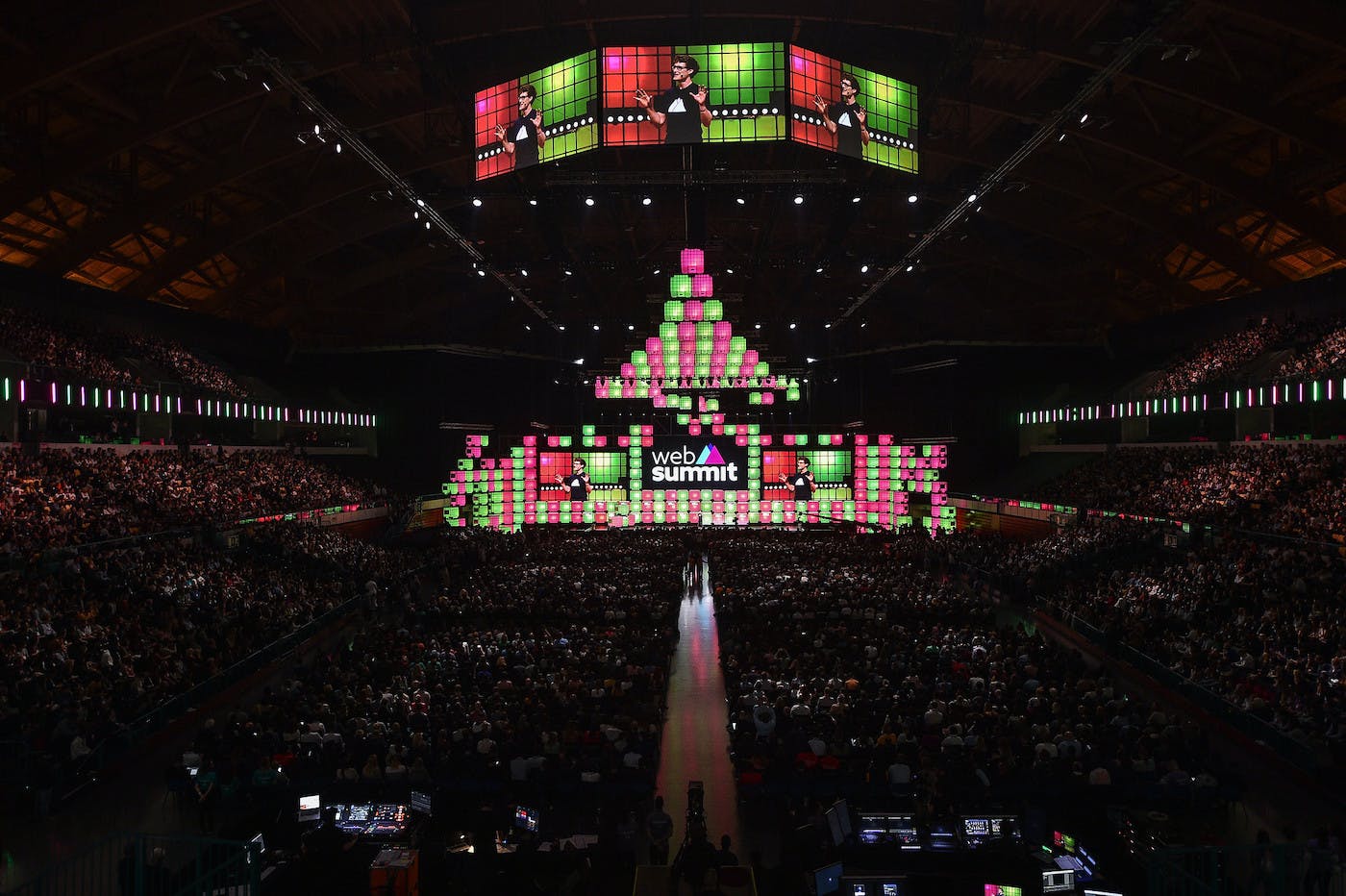TikTok tips and tricks
One of TikTok’s biggest sensations gives advice on how to harness the power of this platform. Michael Le...

Here’s something few people know: the last two years have been the hardest of my life. I would guess the same is true for many who work with me, as well as the tens of thousands who join us at our events. Because everyone has a plan until a devastating global pandemic.
Web Summit almost went bust in 2020. Our revenues fell by more than €30 million. We made a huge loss for the first time in our history. We came close to catastrophe.
This was new.
From 2009, when I started Web Summit on my own in my bedroom, through to 2019, we only ever grew. In March 2020 those good, and comparatively easy, times came to a shuddering halt. From boom we were suddenly on the verge of bust.
Faced with that kind of adversity, some things are easy. It’s easy to fall to doubt, to lose confidence, and worse, your values and principles. It’s easy to just think of the short term and making it through another week, another month, another quarter. It’s harder to learn some things about your character and how you face up to hard times. It’s harder, much harder, to stay firm to what you believe and what’s always worked in the past.
On our way to building Web Summit, we did lots of things event companies aren’t supposed to do. For some of our first staff we hired software engineers and physicists, rather than event planners, and made network science central to absolutely everything we do.
We’ve developed our own software in-house to power our events. We obsessed over the tiniest event details, from the font on our name badges to the attendee queuing system.
These were all gambles – most event companies don’t do this kind of thing. But we did and these gambles seemed to pay off pretty well. So when March 2020 and the pandemic hit, we thought why not gamble again? We did everything an events company shouldn’t do, but we did it with a clear head, all the while knowing that’s who we are.
As seemingly every other events company was laying off 50, 60 and sometimes 90 percent of their staff, we did the opposite. We kept absolutely everyone.
As organisers were cancelling events and refusing to give attendees and exhibitors their money back, we offered every attendee who had bought tickets to any of our real-world events full and immediate refunds and did the same for all exhibitors.
Along the way our team put in an incomprehensible effort to move all our events to our online platform. It was without doubt the most stressful year I’ve ever experienced. And I’m sure that was the same for almost everyone at Web Summit.
Looking back, these were huge gambles for us – by far the biggest in our history. But we trusted ourselves and all that led us to that point. Our gambles paid off.
We knew that our goal wasn’t to succeed in surviving the moment, but in putting ourselves in the best possible position to grow into the future, post-pandemic. And we did. With roughly 220 staff we navigated through the depths of the pandemic and made it to the other side, stronger than before.
#CollisionConf 2022 is officially sold out, with just over 5 days to go to the event 🙌
This year is set to be our biggest yet, with 40% more tickets sold than in 2019!
We’re so excited to welcome more than 35,000 attendees from 140+ countries to “the Olympics of tech” 🎉 pic.twitter.com/TwtmlFRWjg
— Collision Conf (@CollisionHQ) June 15, 2022
Next week we welcome 35,000 attendees to a sold-out Collision conference in Toronto. That’s 40 percent more than 2019, the last time we were in Canada. The venue size itself has increased more than 50 percent from just less than 50,000 square metres in 2019 to more than 77,000 square metres this year. That’s about 300 tennis courts of space.
And our startups: about 50 percent more startups will join us in Toronto compared to last time around. I’m sure many have similar war stories to us at Web Summit, stories of seemingly hopeless times that were somehow seen through with a combination of perseverance, stubbornness and maybe a little luck.
For us at Web Summit our near-bust is now a new boom. Our revenue by the end of 2021 grew, compared to 2020, by 83 percent, which is faster than at any previous point in our history. This year is on track to be our best ever for revenue.
We now sell our software to some of the biggest events in the world such as the Consumer Electronics Shows (CES) and to organisations including the United Nations. We’ve launched new events in South America and are planning to launch more still in Africa, the Middle East and Asia in the coming years.
We can’t wait for Collision next week in Toronto. We’ve never sold out a week ahead of time. To all those who can’t get tickets for Collision next week: we’ll be back in 2023, using more venues and creating an even bigger space for more people from across the globe.
To all those joining us next week in person, we can’t wait to see you and to swap stories of the last couple years. Enjoy your event – is it fair to say we all deserve a good one?
One of TikTok’s biggest sensations gives advice on how to harness the power of this platform. Michael Le...

Ahead of Web Summit 2022, we spoke to Startup Portugal executive...